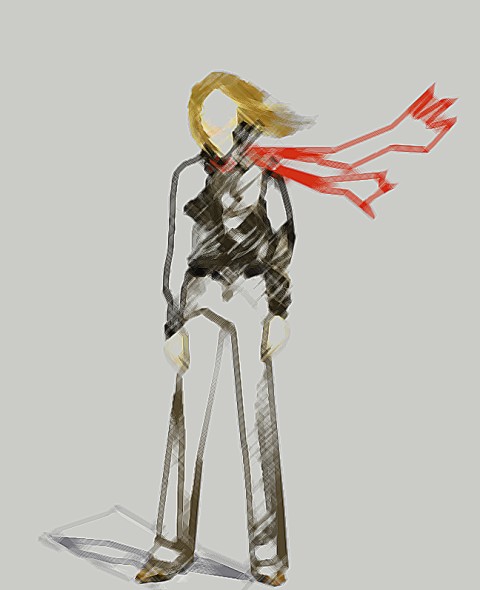Amelia hates it when people call her Amy. Amy is her mother’s name, she tells them, and her grandmother’s name. And she is nothing like them. She is educated. She is a career woman. She wears pants and a leather jacket and has short hair because she is a flyer. And Amy and Amy? They are helpless wives of alcoholics, dragging their children behind them like designer luggage through the clatter of empty whiskey bottles.
She also does not want to be called Meeley anymore. It is an unfortunate nickname. It conjures images of undercooked oatmeal and apples that have sat too long in the blue bowl on the kitchen counter. It reminds her of the time she rode her sled off the roof of the farmhouse. She spent a moment on the ramp, angled toward the clouds. Then a long beat in the air—flying! It was the same stomach-dropping feeling as being at the top of her arc on the swing set, the moment when the chains go slack and you just fall. And then the hard smack of the ground. Her dress torn, her elbow bleeding, her molar turned to powder in her mouth. She shifted it around with her tongue. Rubbed it against the roof of her mouth. Mealy.
The students in her class called her “the girl in brown who walks alone.” That’s what they printed under her photo in the yearbook. Maybe she wouldn’t have been alone so much if any one of them had had half a brain. Or even a quarter of a brain. A quarter of a brain she could work with. But the girls at school were mindless idiots. They were just looking to get out of high school, get married, have baby after baby until they get a boy to carry on the family name, and die having learned nothing more than they knew in high school. Amelia filled a binder with images of women doing men’s jobs and doing them well: scientists, doctors, a mayor in New Jersey, a pilot. And look at her now. Ten world records under her belt. Now she is attempting her biggest stunt yet. The papers say she is the first woman to attempt to fly around the world. But she knows better. She is looking for more than good press.
Amelia really doesn’t like being called Mrs. Putnam. She’d rather be called anything else, including almost all of the cuss words. When the reporter from The New York Times captioned her photo, “Mrs. Putnam,” she was so mad she couldn’t see straight. George smiled a wide, beaming smile. “What do you think about that, Mrs. Putnam?” he said. She would have pitied him if not for the searing heat suddenly cloying at her brain. “I don’t know, Mr. Earhart,” she’d spit back. He struck her, the only time he ever did. She knew then she’d have to leave him. She rubbed her flushed left cheek. It would happen soon. She would board the Electra and never look back.
A.E. she doesn’t mind so much. She could make a fuss about society reducing her whole being to two letters, but she doesn’t. She concentrates instead on her flying. It is her escape. She takes Canary, her yellow bi-plane, up to eight-hundred feet where even the air she breathes feels different. Up there her busted sinuses magically clear and her headaches evaporate like dew in hot sun. No one is as fast as she. No one can follow her up this high. This is where she gets away. This is how she will get away.
Amelia is what she really wants to be called. Fred Noonan, her navigator, calls her Amelia. “Amelia,” he says, “we should start sending the signals now. We’re about three hundred miles out.” She nods at him, takes his hand. He calls in their coordinates as if they are still heading for Howland Island. But they are not. They are going to Gardner Island. It will be lonely there but beautiful. Fred is a marine man. He can make them shelter and find them food, fishing in the island’s big lagoon. She has nurse’s training. She will keep them safe and healthy. Her hair will get long. Fred will grow a beard. There will be no whiskey and no stupid girls and no grandmother telling her to wear a dress like a lady. Every morning she will wake up, naked as the day God made her, to the feeling of warm wind on her face and Fred’s sweet voice in her ear whispering, “Amelia.”



 The SmokeLong Grand Micro Contest (The Mikey) is now an annual competition celebrating and compensating the best micro fiction and nonfiction online.
The SmokeLong Grand Micro Contest (The Mikey) is now an annual competition celebrating and compensating the best micro fiction and nonfiction online.